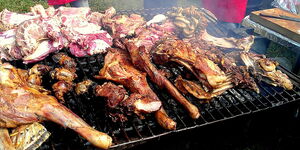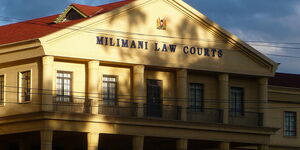Refrigeration is a popular way of storing food to make it last longer.
A fridge helps keep food longer and fresh because the cold slows down the activity of bacteria.
Despite the popularity of fridges, many Kenyans do not know the safe use of a refrigerator and may end up experiencing food poisoning as explained by Francis Kitela, a nutritionist.
Speaking exclusively to Kenyans.co.ke, Kitela explained how someone can get sick from consuming refrigerated food.
“Most people by the time they put their food in the fridge bacteria has already started forming.
“Some bacteria can survive in extremely cold temperatures and if the food is not warmed well, it can cause food poisoning,” he explained.
He further revealed 5 types of foods that should not be refrigerated.
Bananas
Kitela explained to Kenyans.co.ke that bananas should not be kept in the fridge an assertion that was supported by Richard Ehrlich who writes health articles for The Guardian.
“When bananas are kept at cold temperatures, the enzymes that enable them to ripen are inhibited.
“This makes other enzymes operate more efficiently which makes the bananas spoil,” Ehrlich explains.
Some of the enzymes that thrive in cold temperatures cause cell damage and the browning enzyme cause the skin to blacken.
Coffee
Nutritionists dissuade Kenyans from storing coffee in the fridge in any form.
On why that is not encouraged, Kitela explains, “Coffee works as a deodorizer meaning that it will absorb all the aromas in your fridge.”
Unless it is the only product in your fridge, it will negatively impact the way your cup of coffee tastes.
Bread
Daniel Gritzer, a senior culinary director, explains that bread and baked wheat products should be kept away from the fridge.
“When bread is stored in a fridge, it recrystallizes which causes staling,” he enlightens.
Gritzer is supported by a fellow culinary expert who writes, “Storing your bread in the fridge shortens its lifespan and ruins its taste and texture.”
Potatoes
Most Kenyans peel their potatoes and store them in the fridge for future use.
Dissuading this habit, Kitela explains, “Raw potatoes have lots of starches, and the cold temperatures can turn the starches into sugars.”
While this will make the potatoes sweeter when cooked, it also makes them turn darker.
Chocolate
Just like coffee, chocolate absorbs odors of surrounding food in the fridge making your bar of chocolate taste like food leftovers.
Cold temperatures also make it impossible for the chocolate bar to release its subtle cocoa flavor.
The moisture in the fridge also leads to Sugar Bloom which is when sugar rises to the surface and discolors the chocolate.












